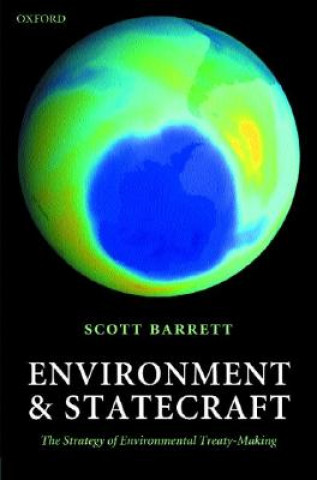
Kód: 04530598
Environment and Statecraft
Autor Scott Barrett
Environmental problems like global climate change and stratospheric ozone depletion can only be remedied if states cooperate with one another. But sovereign states usually care only about their own interests. So states must someho ... celý popis
- Jazyk:
 Angličtina
Angličtina - Vazba: Pevná
- Počet stran: 446
Nakladatelství: Oxford University Press, 2003
- Více informací o knize

3605 Kč
Dostupnost:
50 % šance Máme informaci, že by titul mohl být dostupný. Na základě vaší objednávky se ho pokusíme do 6 týdnů zajistit.
Máme informaci, že by titul mohl být dostupný. Na základě vaší objednávky se ho pokusíme do 6 týdnů zajistit.Prohledáme celý svět
Mohlo by se vám také líbit
-

The Illusion of Life : Disney Animation
1350 Kč -
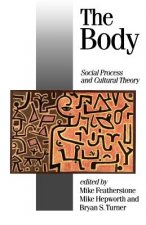
Body
2547 Kč -

Devil's Food Dictionary
432 Kč -

Handbook of Creative Cities
1728 Kč -

Elementary Korean Workbook
419 Kč -

Albania on the Move
2346 Kč -

Fences
702 Kč
Darujte tuto knihu ještě dnes
- Objednejte knihu a zvolte Zaslat jako dárek.
- Obratem obdržíte darovací poukaz na knihu, který můžete ihned předat obdarovanému.
- Knihu zašleme na adresu obdarovaného, o nic se nestaráte.
Informovat o naskladnění knihy
Zadejte do formuláře e-mailovou adresu a jakmile knihu naskladníme, zašleme vám o tom zprávu. Pohlídáme vše za vás.
Více informací o knize Environment and Statecraft
Nákupem získáte 361 bodů
 Anotace knihy
Anotace knihy
Environmental problems like global climate change and stratospheric ozone depletion can only be remedied if states cooperate with one another. But sovereign states usually care only about their own interests. So states must somehow restructure the incentives to make cooperation pay. This is what treaties are meant to do. A few treaties, such as the Montreal Protocol on Substances that Deplete the Ozone Layer, succeed. Most, however, fail to alter the state behaviour appreciably. This book develops a theory that explains both the successes and the failures. In particular, the book explains when treaties are needed, why some work better than others, and how treaty design can be improved. The best treaties strategically manipulate the incentives states have to exploit the environment, and the theory developed in this book shows how treaties can do this. The theory integrates a number of disciplines, including economics, political science, international law, negotiation analysis, and game theory. It also offers a coherent and consistent approach. The essential assumption is that treaties be self-enforcing-that is, individually rational, collectively rational, and fair.The book applies the theory to a number of environmental problems. It provides information on more than three hundred treaties, and analyses a number of case studies in detail. These include depletion of the ozone layer, whaling, pollution of the Rhine, acid rain, over-fishing, pollution of the oceans, and global climate change. The essential lesson of the book is that treaties should not just tell countries what to do. Treaties must make it in the interests of countries to behave differently. That is, they must restructure the underlying game. Most importantly, they must create incentives for states to participate in a treaty and for parties to comply.
 Parametry knihy
Parametry knihy
Zařazení knihy Knihy v angličtině Law International law Public international law
3605 Kč
- Plný název: Environment and Statecraft
- Podnázev: The Strategy of Environmental Treaty-making
- Autor: Scott Barrett
- Jazyk:
 Angličtina
Angličtina - Vazba: Pevná
- Počet stran: 446
- EAN: 9780199257331
- ID: 04530598
- Nakladatelství: Oxford University Press
- Hmotnost: 809 g
- Rozměry: 242 × 163 × 29 mm
- Datum vydání: 09. January 2003
Oblíbené z jiného soudku
-

Stanislavski On Opera
865 Kč -

International Law
1140 Kč -
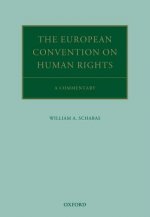
European Convention on Human Rights
2275 Kč -

European Union Law: A Very Short Introduction
275 Kč -

Environmental Law: A Very Short Introduction
269 Kč -

Cyber Warfare and the Laws of War
1224 Kč -

Europarecht in Fällen
1081 Kč -

Tallinn Manual 2.0 on the International Law Applicable to Cyber Operations
1880 Kč -

Refugee in International Law
1713 Kč -

Sceptical Essays on Human Rights
1992 Kč -

A Farewell to Wars
794 Kč -
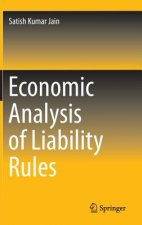
Economic Analysis of Liability Rules
1681 Kč -

Cassese's International Criminal Law
1841 Kč -

International Law
1489 Kč -

Textbook on International Law
1296 Kč -

International Law 2nd Edition
1725 Kč -

Principles of International Environmental Law
1612 Kč -

Offshore Finance
1864 Kč -

Advanced Introduction to International Humanitarian Law
761 Kč -

Human Dignity
1282 Kč -

Critical Approaches to International Criminal Law
2064 Kč -

Rogue States
522 Kč -

Criminological Approaches to International Criminal Law
2819 Kč -

Self-Defence in International and Criminal Law
5172 Kč -

Handbook of Environmental Policy Evaluation
4568 Kč -

Pluralism in International Criminal Law
5756 Kč -

Disputed Territories and International Criminal Law
4415 Kč -

EU External Relations Law
1995 Kč -

Water Capitalism
1351 Kč -

Diplomatic Handbook
3230 Kč -

Brownlie's Principles of Public International Law
2067 Kč -

International Environmental Law
1349 Kč -

Cases & Materials on International Law
1512 Kč -

Economic Sanctions and International Law
3804 Kč -

Aust's Modern Treaty Law and Practice
1270 Kč -

Public International Law
2092 Kč -

Critical Introduction to International Criminal Law
987 Kč -

Modern Diplomacy
1495 Kč -

International Investment Law and Arbitration
1754 Kč -

World Crisis and International Law
794 Kč -
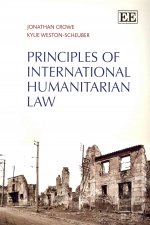
Principles of International Humanitarian Law
820 Kč -

Principles of International Economic Law
2413 Kč -

Environmental Protection
410 Kč -

Food Law and Regulation for Non-Lawyers
2643 Kč -

Research Handbook on International Environmental Law
1958 Kč -

Should Trees Have Standing?
1073 Kč -

International Criminal Law
1857 Kč -

Customary International Law in Times of Fundamental Change
1199 Kč -

European Public Prosecutor's Office
5391 Kč
Osobní odběr Praha, Brno a 12903 dalších
Copyright ©2008-24 nejlevnejsi-knihy.cz Všechna práva vyhrazenaSoukromíCookies


 Vrácení do měsíce
Vrácení do měsíce 571 999 099 (8-15.30h)
571 999 099 (8-15.30h)